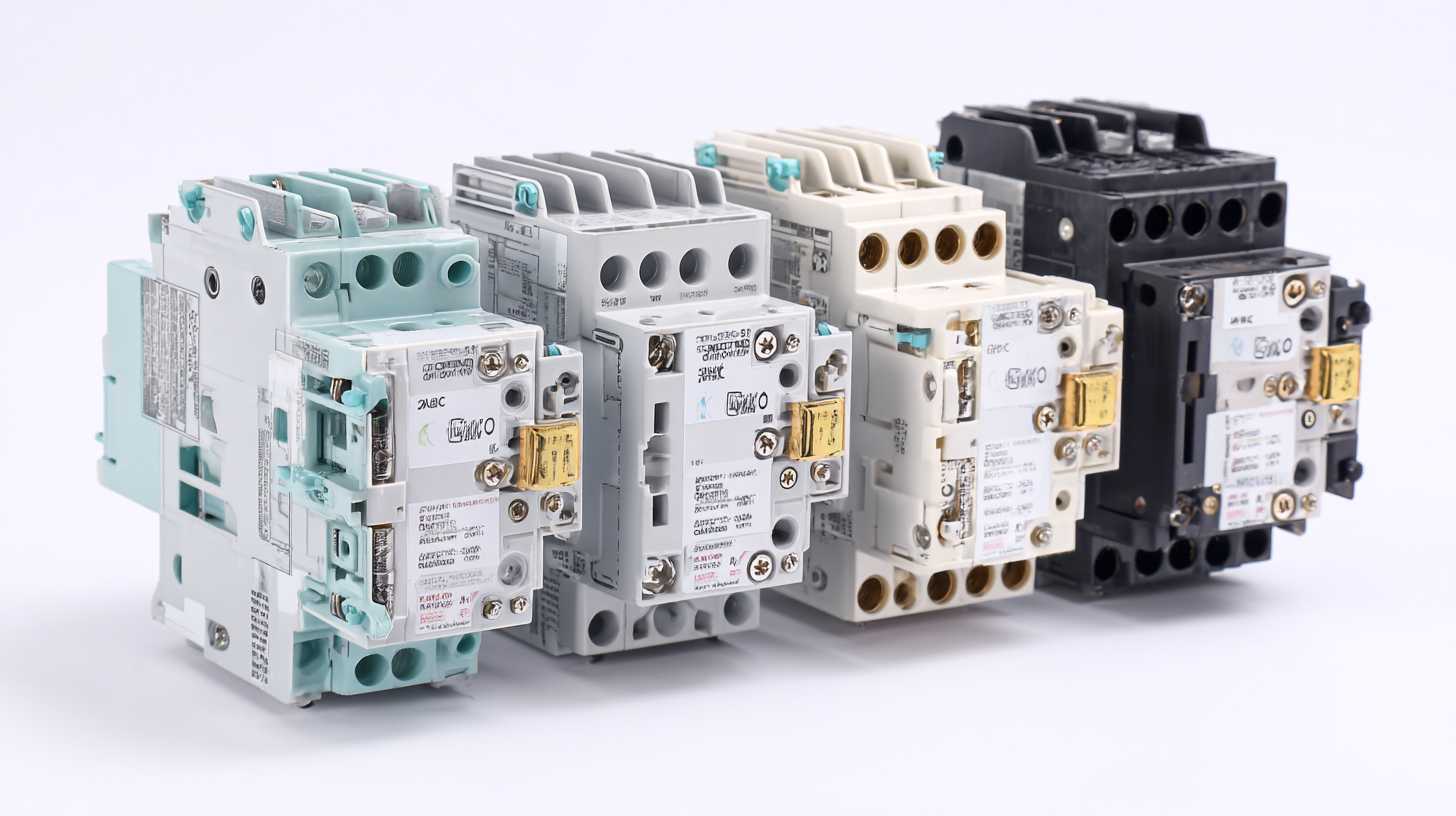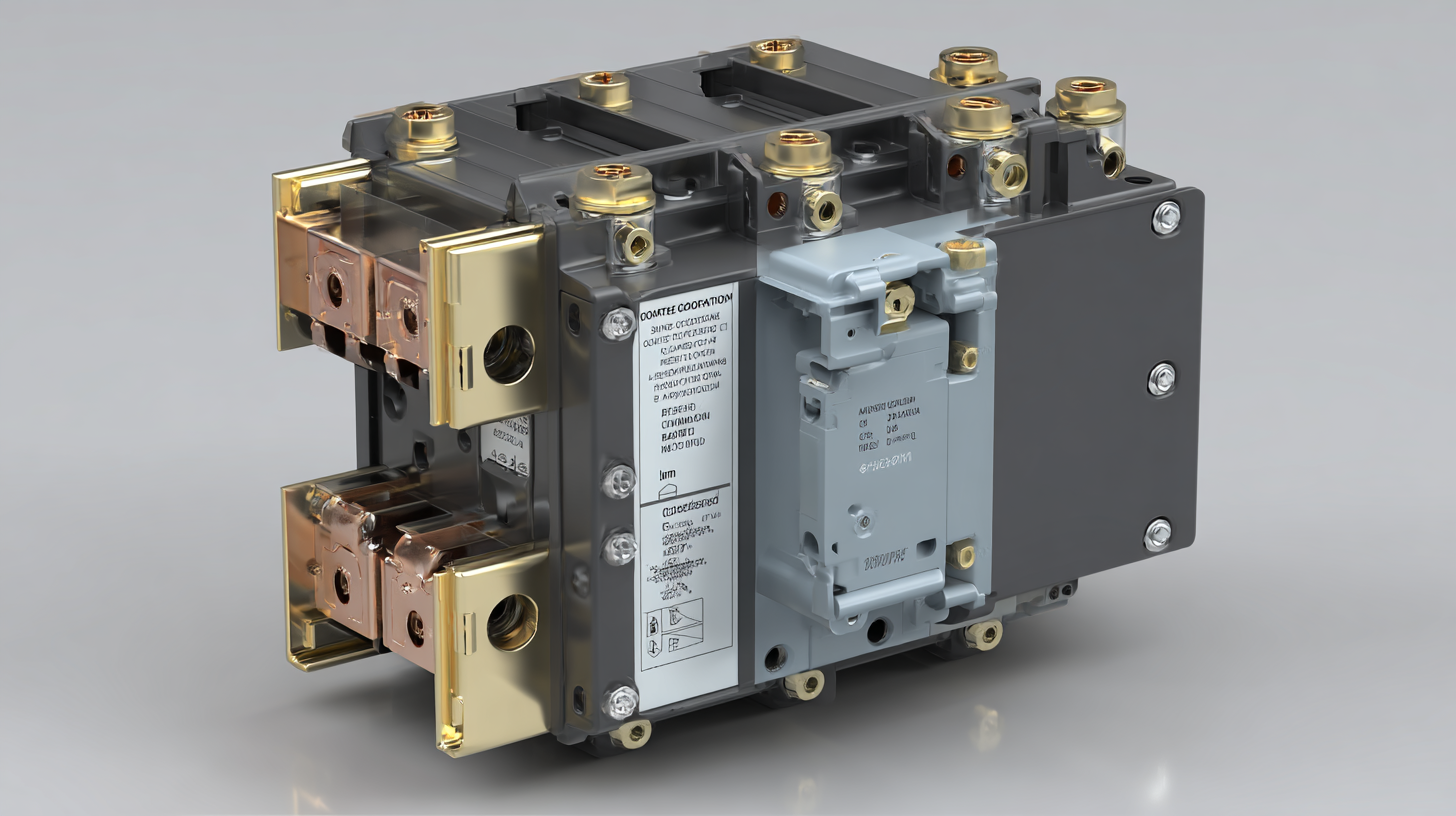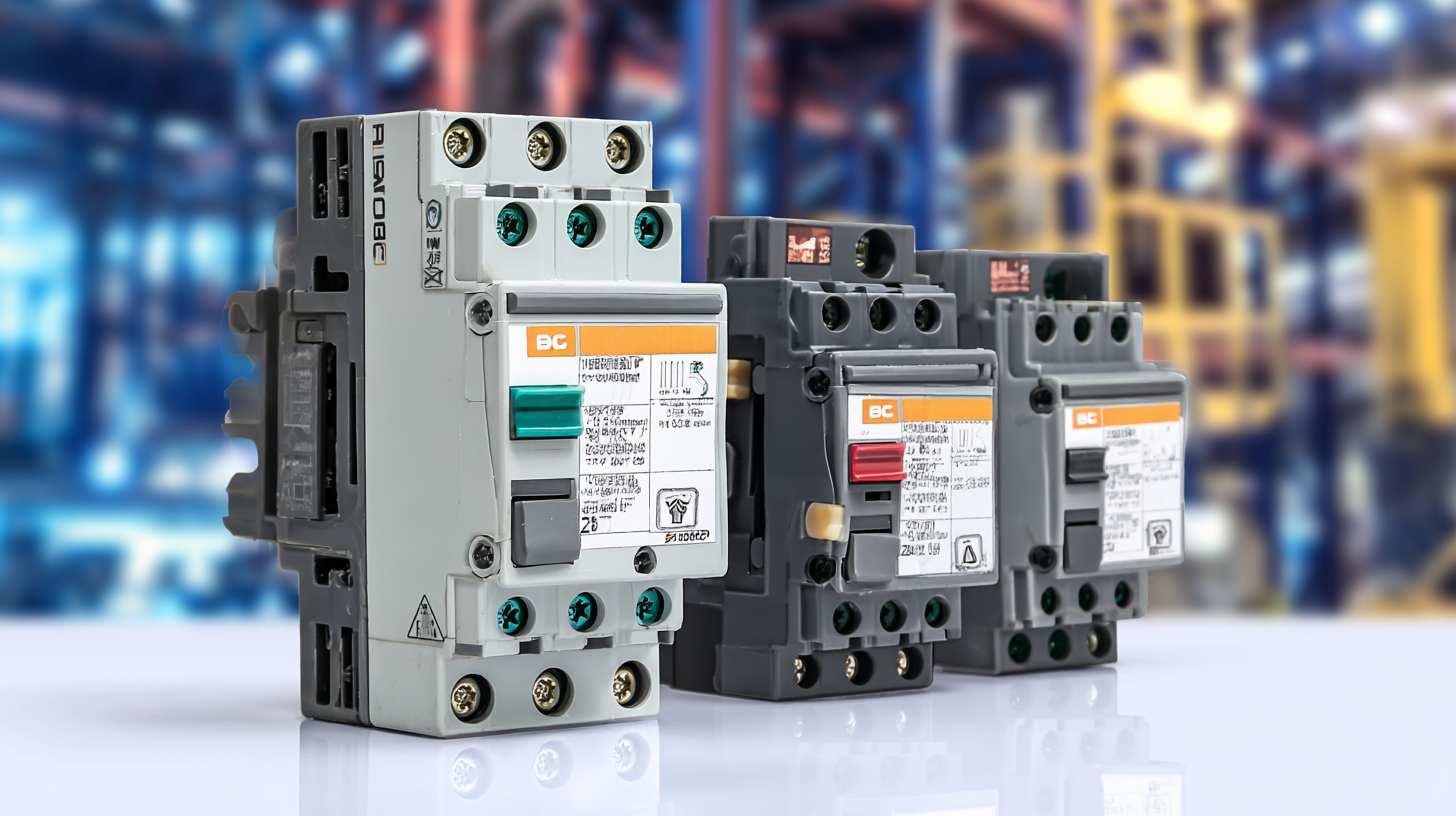
2023's Leading AC Contactors: Import-Export Certifications and Industry Standards Unveiled
In the realm of industrial electrical components, AC contactors play a pivotal role in the safe and efficient operation of various machinery and systems. As we navigate through 2023, understanding the leading AC contactors available on the market becomes essential for professionals seeking reliability and compliance with industry standards. This comprehensive guide explores the significance of import-export certifications and industry benchmarks that govern the performance and safety of AC contactors. With an emphasis on quality, efficiency, and adherence to regulatory requirements, we will unveil the top contenders, providing insights into their specifications, applications, and the standards they meet. Whether you are a manufacturer, supplier, or end-user, this ultimate guide aims to equip you with the knowledge needed to make informed decisions in selecting the best AC contactors for your needs.

Leading AC Contactors: An Overview of Import-Export Certifications in 2023
In 2023, the global market for AC contactors has become increasingly competitive, underscoring the necessity for import-export certifications that ensure compliance with industry standards. These certifications serve as a critical benchmark for manufacturers and suppliers, validating that their products meet safety, reliability, and performance criteria. Major certifications like ISO, CE, and UL are pivotal, as they not only enhance product credibility but also facilitate smoother trade across borders by ensuring that products are in alignment with international regulations.
Import-export certifications ensure that AC contactors are tested for various parameters, including electrical and thermal performance, which are vital for their operational efficiency in various applications. As countries tighten regulations to improve safety and efficiency, manufacturers must stay informed about the latest requirements. This includes understanding specific regional certifications that may vary, emphasizing the importance of comprehensive knowledge in global trade practices. As such, a robust certification strategy can significantly impact a company’s reputation and marketability, paving the way for success in the dynamic landscape of AC contactor distribution.
Key Industry Standards That Shape AC Contactor Performance and Safety
When it comes to AC contactors, understanding the key industry standards that govern their performance and safety is crucial. Certifications such as UL (Underwriters Laboratories), CE (Conformité Européenne), and IEC (International Electrotechnical Commission) set a benchmark for reliability and safety. These standards ensure that products can withstand high voltages and currents, reducing the risk of electrical failures and fire hazards.
Tip: Always verify if the AC contactors you choose have the necessary certifications. This not only safeguards your equipment but also ensures compliance with local safety regulations.
In addition to certifications, aspects such as temperature ratings and durability must be taken into consideration. Industry standards define how contactors perform under varying environmental conditions, which is essential for their longevity and efficiency. Opting for contactors that meet or exceed these standards reflects a commitment to safety and reliability in any electrical installation.
Tip: Review the product specifications for environmental ratings to select the best options for your specific application. Properly rated contactors will lead to better performance and reduced maintenance costs in the long run.

Navigating the 2025 Technology Trends in AC Contactors: What to Expect
As we approach 2025, the landscape for AC contactors is set for profound transformation, primarily driven by the increasing demand for energy-efficient solutions. The AC contactor market is projected to exceed $523.3 million by 2024, with a compound annual growth rate (CAGR) of 6.1% through to 2034. This growth is largely a response to the global push for sustainability and the need for smarter energy management systems in various applications. Enterprises are adapting to these trends by focusing on innovations that align with energy efficiency, thereby enhancing their competitiveness in the market.
Furthermore, as technology advances, the integration of smart features into AC contactors is becoming commonplace. The anticipated rise of electric vehicle (EV) technology further highlights this transition. The EV relay market is expected to surpass $3.4 billion in 2024, with an impressive CAGR of 8.4% projected until 2034. This surge underscores the growing intersection of automotive electronics and energy systems, which presents new opportunities for both existing players and new entrants in the AC contactor industry. As these trends unfold, staying abreast of certification requirements and industry standards will be vital for companies looking to thrive in this evolving market.
Checklist for Compliance: Essential Certifications for AC Contactor Manufacturers
In the rapidly evolving landscape of AC contactors, compliance with industry standards and certifications is more crucial than ever for manufacturers. With the recent announcement from China regarding mandatory certifications for electric vehicle supply equipment, it highlights the growing emphasis on regulatory frameworks across various sectors, including HVAC. Manufacturers must familiarize themselves with essential certifications that not only ensure product safety and performance but also enhance market credibility.
Key certifications such as ISO 9001 for quality management systems and IEC 60947 for low-voltage switchgear and controlgear are fundamental for AC contactor manufacturers aiming to meet international standards. Additionally, compliance with energy efficiency regulations and environmental impact assessments is becoming increasingly important as industries strive to meet sustainability goals. This checklist for compliance serves as a vital tool for manufacturers to navigate the complex certification landscape, ensuring that their products not only comply with local regulations but also resonate with global market expectations.
Compliance Checklist for AC Contactor Manufacturers in 2023
Market Insights: Growth Projections and Dynamics for AC Contactors Through 2025
The AC contactor market is poised for significant growth as we approach 2025. With the global drive towards automation and energy-efficient solutions, the demand for reliable and advanced AC contactors has surged. Recent market insights reveal that the ongoing trends in urbanization and infrastructure development are key drivers propelling this growth. As more industries seek to enhance their operational efficiency and minimize energy consumption, AC contactors have become an integral component in various applications, from residential buildings to industrial installations.
Furthermore, the expansion of the HVAC sector and the increasing installation of smart technologies are expected to further fuel market dynamics. The rising preference for IoT-enabled devices in climate control systems positions the AC contactor as a vital element in modern infrastructure. As we advance towards the mid-2020s, companies focusing on innovation and sustainability in their product offerings are likely to lead the market, catering to the evolving demands of consumers and businesses alike. The outlook for AC contactors suggests not just growth in market size but also advancements in technology that will reshape their functionality in numerous sectors.

